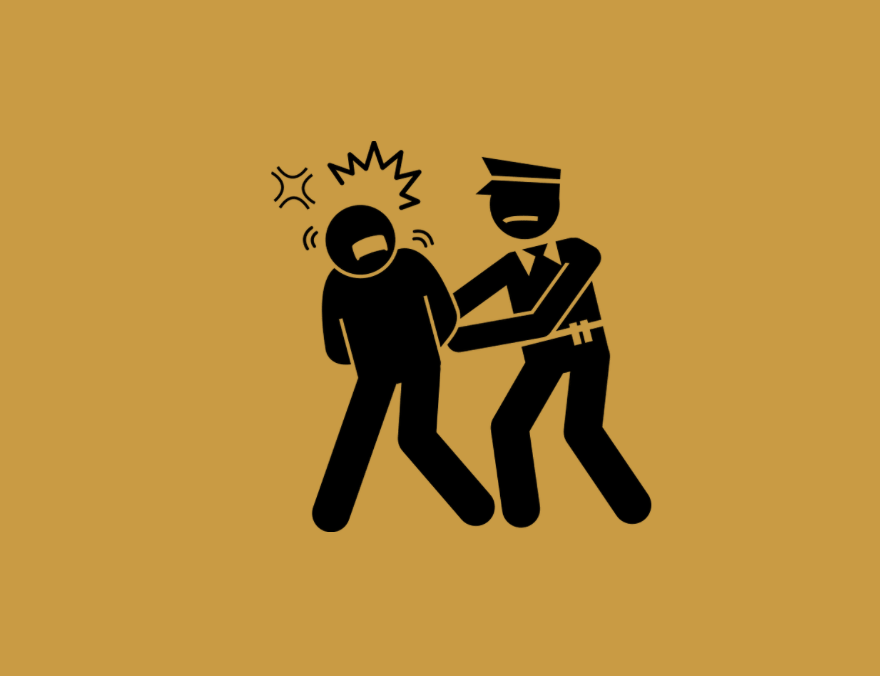An arrest is using legal authority to deprive a person of his or her freedom of movement. In Uganda most arrests are carried out by the police or other security agencies. Here we shall focus on arrests by the police. Once anyone is arrested by the police they are legally supposed to be detained inside a police cell and are referred to as suspects.
Rights of a suspect in Police custody
All suspect in police custody, irrespective of the offence he/ she is alleged to have committed, has rights and these rights include the following;
- To be informed in a language they understand of the offence they are suspected to have committed
- Not to be subjected to torture, cruel, inhuman and degrading treatment.
- To be presumed innocent until proven guilty by a competent Court of Law
- To be produced before a competent court within 48 hours
- To apply for Police Bond pending investigations into the case.
- To be released as soon as possible if no case has been properly framed against them.
- To speak to a lawyer of their choice.
- To be informed of the progress of their case before they are taken to Court.
What is Police Bond and who has the mandate to grant it?
A person arrested and detained at a police station after being suspected for breaking the law may be released until the police completes its findings. The guarantee that he or she will turn up whenever required to do so by the police is known as police bond. NOTE: Police bond is free of charge.
Any suspect that has been arrested or their relative, on the suspect’s behalf, has a right to apply for Police Bond and this relative should avail their telephone contact and address details to ensure that the suspect reports whenever required. Once a suspect is granted police bond and subsequently skips bond, he/ she will be re-arrested and brought back into police custody.
NOTE: Where a suspect is denied Police Bond, they have a right to re-apply for the same.
The Role of Justice Centres in handling/ supporting Suspects in Police Custody
- Visiting police stations to sensitize suspects about their rights
- Helping suspects get police bond by contacting their relatives who can stand surety for them
- Explaining to the suspects what the offences they are charged with are all about and what to expect when they get to court.
- Ensuring that those that have been in police custody for more than 48 hours without their files being sanctioned are released and left to go home.
- Assisting the police to mediate some complex matters that require a lawyer’s intervention.
What are the different categories of offences committed?
The Police handle all offences that are criminal in nature. Criminal offences are committed against the Government of Uganda and therefore government lawyers called State Attorneys or Prosecutors appear in court on behalf of Uganda.
Criminal offences are either Capital or Petty offences.
NOTE: We also have semi- capital offences such as arson, simple defilement (those that attract imprisonment for life), they can be handled by the Chief Magistrate Court.
What are capital offences?
A capital offence is one that carries a maximum sentence of death and is handled by a judge of the High Court. Examples of such offences include; Murder, Aggravated Robbery, Aggravated defilement, Rape among others.
A person that has been charged with a capital offence is called a capital offender or an accused person.
What are Petty Offences?
These are minor offences whose penalty ranges from a caution, low value fine, community service and a one-month imprisonment term. The penal code lists these offences to be; idle and disorderly, prostitution, being a common nuisance, rogue and vagabond, easing oneself in public and begging on the streets. They are usually handled by grade 1 and 2 Magistrates.
Further Readings:
What happens when a family member/ friend has been arrested by the police?
What is Police Bond and who has the mandate to grant it?
What are capital offences and how are they handled?
What is the process of hearing the case of a person accused of a capital offence in the High Court?
What is the process of hearing a petty offender’s case in the Magistrate’s Court?
What happens when someone is arrested for committing a petty offence?
What is bail and what is it good for?
When and how to apply for Bail in High Court?
When and how to apply for Bail in a Magistrate’s Court?
What is plea bargain and what is it good for?
Summary:
- Capital offences are tried by the high Court and petty offences by lower courts (Magistrates Court)
- Capital offences take longer to be concluded (compared to petty offences)
- Pleading guilty to an offence may lead to reduction of the sentence
- Police bond is free.
- Bail in the High Court is applied for in writing while in the Magistrates court it is orally applied for.
Sources of information
- The Constitution of the Republic of Uganda 1995
- The Trial on indictment Act Cap
- The Criminal Procedure Code Act Cap 116
- The Magistrates Court Act Cap 16
- The Magistrates Courts (Magisterial Areas) Instrument 2017
- The Judicature (Plea bargain) Rules 2016












3 Responses
Comments are closed.